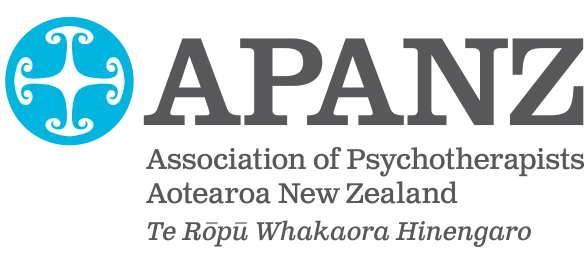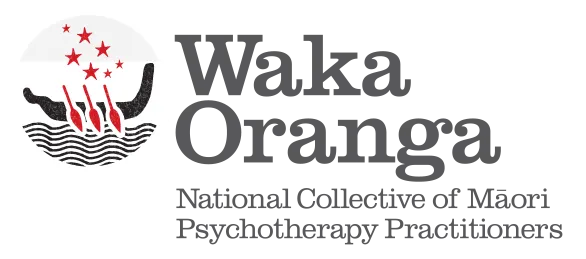Apology from the Association of Psychotherapists Aotearoa New Zealand
(APANZ) to Takatāpui, Lesbian, Gay, Bisexual, Trans, Queer, Intersex, Asexual,
Māhū, Vakasaluwalewa, Palopa, Fa’afine/Fa’atama, Akava’ine, Fakaleiti/Leiti,
Fakafifine and other members of Rainbow Communities in Aotearoa New Zealand.
Recognition of harm
In relation to processes of remembering, acknowledging, and taking responsibility for historical
harm, Jacinda Ardern comments:
Some may say that the past is the past, that we cannot change what happened. That
fails to consider that our future is shaped by where we have come from. It is shaped by
our response to tragedy and injustice, … The past is never just the past.
We realise that to deny the harm that we have caused is to perpetuate this harm, further injuring
both those who have been directly harmed, and also ourselves, should we refuse to recognise
the history of our own capacity to cause sometimes devastating emotional, spiritual, and
physical injury. Therefore, we offer the following apology and make clear our firm commitments
as we look to the future.
Apology
The Association of Psychotherapists Aotearoa New Zealand (APANZ) apologises for clinical
practices, theory, ideas, actions, and failures to act, that have occurred within and by our
Association, and within psychotherapy in Aotearoa New Zealand, and which have contributed to
the prejudicial and harmful treatment of people with diverse sexual orientations and gender
experiences, presentations, and identities.
We recognise and are profoundly sorry for those times when psychotherapy theory and practice
have been used in ways that stigmatise and pathologise Takatāpui, LGBTQIA+ people and
MVPFAFF+ Pasifika people, casting them as diseased, disturbed, developmentally challenged
or in any other way abnormal, based on their sexual orientation or gender diversity.
Colonial History
The history of harm embedded within psychotherapeutic theory and practice in Aotearoa New
Zealand, following colonialism, is very painful. We resonate and agree with the statement
offered by our Rainbow Rōpū that the violent intrusion of colonialism, infused with Christian
missionary ideas, disavowed and attempted to eradicate the diversity of indigenous Māori
gender and sexuality expression, with horrendous consequences. And that the violence of
colonialism in relation to gender and sexuality is replicated throughout the Pacific, as reflected in
the pathologising of MVPFAFF+ Pasifika people and similar presentations, identities, and
experience.
Harmful Treatments
Tragically, psychotherapists in Aotearoa New Zealand often accepted and perpetuated
heteronormative and Eurocentric thinking in relation to sexual orientation and gender. We
adopted ideas that regarded same sex attraction and diverse gender experience as
developmental disturbances or signs of psychopathology that needed to be fixed or cured.
These ideas matched those used by psychiatrists to justify their use of electroconvulsive and
diabetic shock therapies, and behavioural ‘aversion therapies’ using electric shocks and
nausea-inducing substances.
We acknowledge how damaging and painful it would have been to place trust in a
psychotherapist, only to be told that homosexual feelings or diverse gender experience were
signs of something wrong that should be cured. Many people with diverse sexual orientation
and gender experience may have already been grappling with the disapproval of family,
whānau, church, community, and wider society. Hearing this kind of message from a powerful,
possibly idealised, professional would likely reinforce any isolation, shame, or self-loathing they
might have already felt. We are sorry that so many Takatāpui, LGBTQIA+ people, and
MVPFAFF+ Pasifika people who reached out for care and support found prejudice and
disappointment instead.
APANZ Failures
There are many times in our history that APANZ and the psychotherapy profession in Aotearoa
New Zealand has been complicit in this historical and ongoing harm to people with diverse
sexual orientations and genders. We failed to protect, and, at times, perpetrated or perpetuated
harm. We have questioned the essence of people’s diverse sexual orientation and/or gender
identity and experience. When opportunities presented themselves, such as when
homosexuality was removed from the Diagnostic and Statistical Manual of Mental Disorders
(DSM), we failed to embrace or acknowledge this important moment. We now understand this
harm in all its iterations and guises as a legacy that is intergenerational, profoundly personal,
and tragically ongoing.
We are sorry that we did so little as an Association to challenge damaging theories and
practices by members of our profession which targeted people with diverse sexual orientations,
gender identities, and gender expressions. We are also very sorry for our failure to make clear
our opposition to such views and practices much earlier in our history.
We reiterate now the statement made by our APANZ Council in November 2024, that, “We
regard diversity in sexual orientations and genders to be an inherent part of the spectrum of
human sexualities” and that “any psychotherapeutic attempts to change a person’s sexual
orientation or gender identity or suppress their experience or expression of their sexuality or
gender, is a form of conversion therapy and is unethical”. (APANZ, 2024, para. 2).
Devastating consequences
The consequences of these ideas, texts, and practices, have been profound. They have
impacted the capacity of people from Rainbow communities to live, work and love with freedom,
creativity and acceptance within wider society. They violated people’s autonomy, dignity and
right to equality. We are deeply sorry that our pathologising theories and practices reinforced the
painful rejections already experienced by so many Takatāpui, LGBTQIA+ people, and
MVPFAFF+ Pasifika people who sought our help. We understand how that might have
worsened feelings of isolation, doubt, and shame, and that this could have led to people ending
their own lives.
Today, we grieve the losses of those who lived lives in painful isolation, and of those who ended
their own lives. We feel profound regret for not doing more to prevent this damage.
Contemporary harm
We also recognise that sadly, this painful past is not only historical but contemporary. We have
listened to members of Rainbow communities in our Association who have told us how we
continue to cause ongoing pain and harm when we speak about the diversity of gender and
sexual orientation experience as if this was something abstract and distant from ourselves. We
know that this has happened within educational and supervisory contexts, in psychotherapy
clinical relationships, in online forums, and in other settings. We acknowledge that, in doing so,
we have sometimes even questioned the legitimacy of your diverse sexual orientation and
gender experience.
As representatives of our Association, we are sorry for the times we have failed to hold people
with diverse sexual orientation and gender identities and experience in mind with care and
respect for their lived experience of the diversity of sexuality and gender, across the spectrum of
human experience. We recognise that this is intensely hurtful and damaging, and that it has
damaged the trust that people from Rainbow communities might have in our Association and
profession.
Commitment: Mistrust and Building trust
As psychotherapists, and as representatives of the governance of psychotherapy in this country,
we recognise that we have responsibility for the perspectives and clinical practices we enact. As
an Association, we know that we have much to learn, and much work to do, to build trust. We
are committed to doing this. We hope that acknowledging the profound, and ongoing harm of
this history will help in the process of restoring trust at a time when Rainbow communities feel
under attack, both here and abroad, and while some practitioners of talk therapies in this
country continue to initiate ‘conversion therapy practices’ with patients.
This apology is a crucial first step because it is not possible to properly grieve, learn, or move
forward without first acknowledging when harm has been done. A simple “sorry” is not enough
when serious harms and breaches of trust have occurred. We recognise that in order to rebuild
trust we need to accompany this apology with ongoing actions that reflect the integrity of this
apology.
Perhaps one of the biggest lessons we must face as psychotherapists, psychotherapy
practitioners, and as an Association, is that we have acted – sometimes with well-meaning
intentions – in ways that have caused profound harm. It is an ethical imperative that we keep
reflecting on this lesson.
Given that we are all sexual and gendered beings, psychotherapists, like all human beings, are
susceptible to being consciously and unconsciously influenced by normative assumptions
regarding sexuality and gender. As we do with all other clinical work, we consider it foundational
to psychotherapeutic work that clinicians in an ongoing way continue to reflect upon their own
consciously and unconsciously held perspectives in relation to sexuality and gender, and the
way these interact with clinical work. We understand that such learning in relation to sexuality
and gender and psychotherapy is ongoing for all members of our Association, and we commit to
supporting this.
We would like to say thank you to all members of our Rainbow Rōpū and all members of diverse
sexual orientation and gender communities in our Association for walking alongside APANZ
Council in this process. We deeply appreciate your ongoing willingness to generously and
honestly engage with us, especially as we know this has been hard and painful work for you.
In response, we commit our support to ongoing learning in relation to sexuality, gender, and
psychotherapy within and beyond our Association. This commitment is founded on the intention
that APANZ and psychotherapy in this country become ever more welcoming, supportive, and
embracing of the wide diversity of sexualities, orientations, gender experiences, presentations,
and identities that make up what it is to be a human being.

